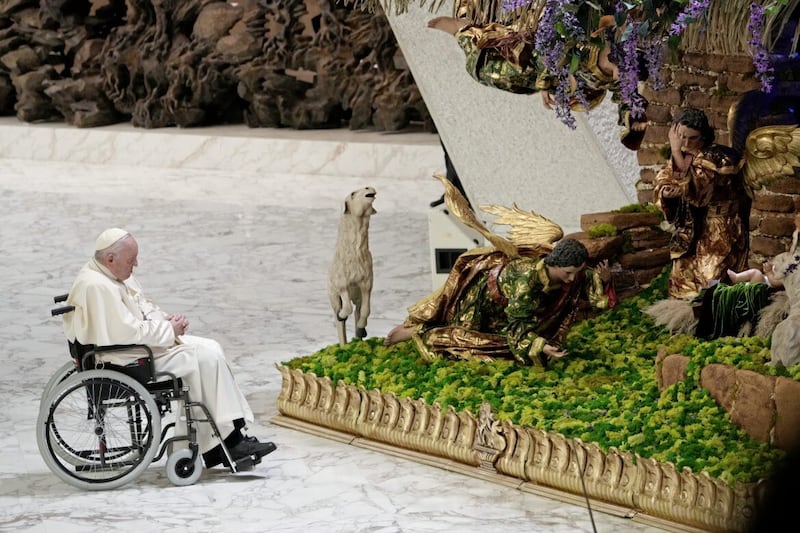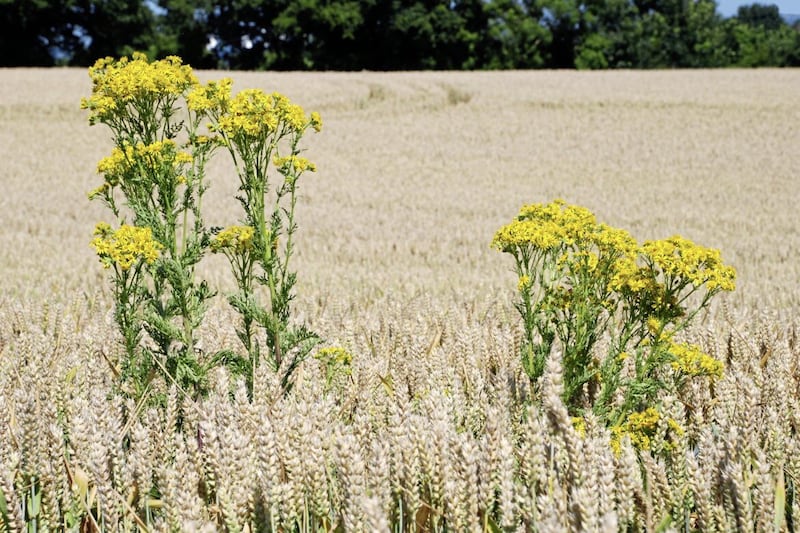THE word 'Advent' means 'arrival' or 'presence'. In its oldest use it referred to the arrival of a high official, a king, queen, or emperor. Every time we enter this season of Advent, I am struck by the imagery of the 'Word made flesh' entering the world and turning conventional wisdom upside down.
God's wisdom delights in the poverty of the crib, the folly of the cross and the faith of the simple shepherds. For some people Christmas time is associated with burdens, financial or otherwise, but through prayerful praise we can put the fizz back in to life.
One person who knew about fizz was Brian Dyson. He was the CEO of Coca-Cola and had a knack for inspiring his workforce through motivational speeches.
In one of his most famous lines he remarked: "Life is not a race, but a journey to be savoured each step of the way. Yesterday is history, tomorrow is a mystery and today is a gift. That's why we call it the present."
During Advent, we savour the coming of the greatest present God ever gave the world, the presence of Jesus Christ our Redeemer.
Faith provides many people with a deeper meaning to life. Knowing that our lives have meaning gives us the strength to achieve what can seem impossible or even to just get through a difficult day.
Despite the joy we can obtain from finite things which are still good, we are restless creatures, incomplete. St Augustine identified this longing for something more as a prime reason for the existence of God, putting it simply: "Our hearts are restless until they rest in you, O Lord."
For many, this is a difficult recognition to make and Christians recognise that it only occurs through God's grace, which first touched our planet in human form on that cold winter night in Bethlehem, amongst cattle and sheep.
St Augustine had a gift for describing complex things simply. After a relentless search for happiness, his conclusion was clear: "O God, this is the happy life and this alone: to rejoice in you, about you and because of you."
A faithful people are by definition a praising people, celebrating the arrival of the Saviour with a ring of 'O Antiphons'. O Holy Night, O Come All Ye Faithful and O Little Town of Bethlehem are some of the hymns we all know well.
The Christian faith holds that the highest form of prayer is adoration, a hallmark of Christmas hymns. The term 'adoration' is derived from the Latin ado ratio, which in turn comes from 'ad ora' (to the mouth).
To adore, therefore, is to be mouth to mouth with God, properly aligned to the divine source, breathing in God's life. Perhaps it's no surprise to find that St Augustine also said, "When you sing, you pray twice."
In her bestselling book, The Happiness Project, Gretchen Rubin chronicled a compelling account during the 12 months she spent test-driving the wisdom of the ages, current scientific research, and lessons from popular culture about how to be happier.
Intriguingly, one recommendation is "singing in the morning". On the surface Rubin seems to agree with St Augustine. But as is typical in modern western culture, so cold to fundamental truths and serious religious discussion, Rubin cherry-picks advice from several cultures to support the view that happiness is something to be grasped.
Christians hold the opposite view: true happiness comes from the One who "gave his life as a ransom for many", the Child-King who enters into the world "not to be served, but to serve".
Advent invites each of us to open our hearts and lives to God, confident that he awaits us with open arms as the Divine Physician who wants to heal all of our ills and put the fizz back in.
During these challenging times we are invited to let the arrival of the Word Incarnate enter our hearts at home, renewing our strength and energy. The path for Christ was uncertain and difficult, but the Coca-Cola CEO reminds us, "Don't be afraid to encounter risks. It is by taking chances that we learn how to be brave."
Brian Wilson grew up in Ballymena, Co Antrim. He is a seminarian for the Diocese of Down and Connor at the Venerable English College in Rome.









